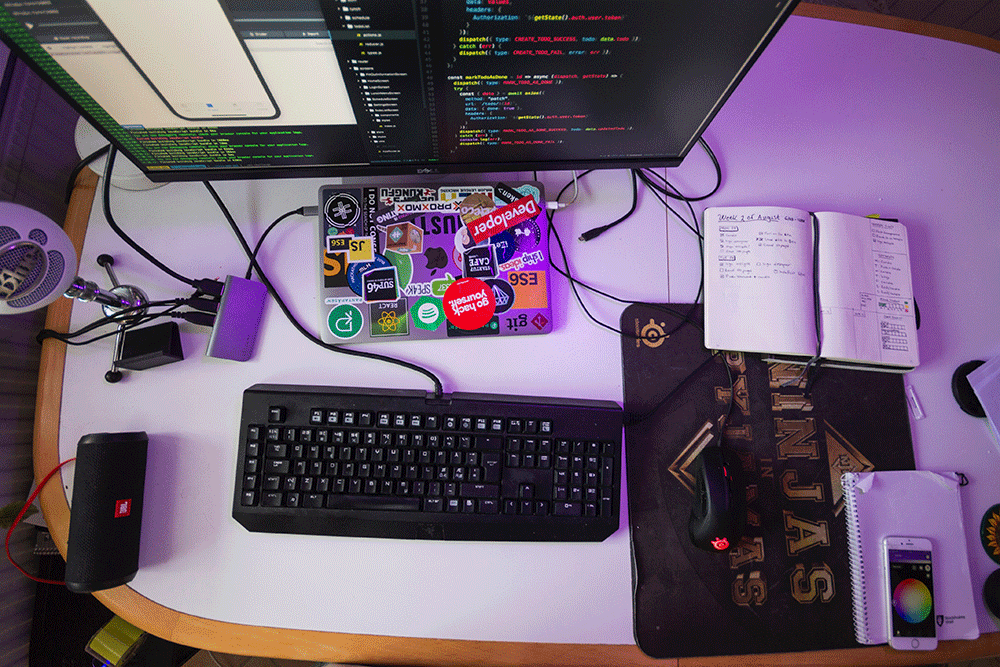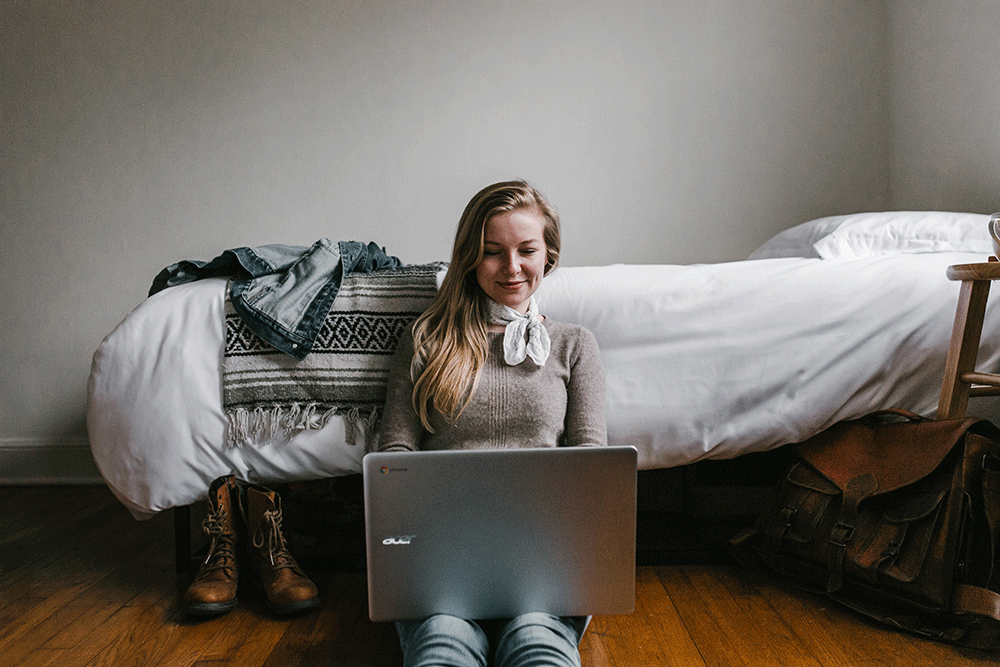Due to the recent COVID-19 outbreak, many of us find ourselves being kept at home and having to carry out our daily tasks within four walls. Remember when you used to think working from home was the height of glamour and you’d yearn for that moment when you could just roll out of bed and get down to it in your jammies? Well, it’s happening, and we want you to make the most of it!
We’re certainly going through uncertain and hard times, but that doesn’t necessarily mean we can’t come out the other end with plenty of lessons learned and improvements to our work and productivity. So, if you’re new to working remotely, these are a few essential tips for you:
1.- Keep to regular hours
It goes without saying that if you work for an established business and are not freelance, you’re expected to follow a timetable. Not only will this guarantee productive teamwork and general efficiency in communication with your colleagues, it will also help you enormously in maintaining a sense of normality when you work remotely. And since we’re on the communication topic…
2.- Take extra care in your communications
Being far from your coworkers may initially seem like an impossible obstacle to overcome but luckily, there are a wide range of digital tools that are, in fact, designed to break this barrier.
Don’t hesitate to ring up on Skype (or your preferred videocall tool) when there’s something you didn’t quite understand in an email. Touch base with your manager daily. Let your colleagues know when you’re going off for lunch. Share your screen during meetings. Overcommunicate if you must, but don’t ever assume others have a fiddler’s of what you’re doing or thinking. Also, – and perhaps more importantly – communicating often and accurately will keep any feeling of isolation or abnormality at bay.

3.- Create a morning routine… and stick to it!
Knowing you have to sit down and get to work is one thing. Having a routine that will actually lead to this is another. Getting up and plonking down in front of your computer with a cup of coffee may seem like a great kick off for your day but trust us – it really isn’t.
If you want to keep up productivity in your work and not succumb to detachedness, stick to a morning routine that is as similar as possible to your regular one. Have a shower, get dressed, eat breakfast and once your teeth are brushed, you’ll know it’s time to get down to work.
4.- Keep a dedicated office space
Granted, you may not have a large choice of spaces to set up as an office. Even if that is indeed the case, please stay away from your sofa. There are surely plenty of flat surfaces (i.e., tables) that, combined with a comfy(ish?) chair will provide a suitable working space.
Mixing personal and professional tasks is a common occurrence when working from home – “Oh, I’ll just send a couple of emails and then get the laundry done”. Ahem, procrastinating much? Having a place in your house that is solely dedicated to work will ensure once you’re in that space, you will fully concentrate on your job and therefore keep up productivity.

5.- Establish ground rules with the people you live with
Unless you live on your own, chances are you’ll be subjected to interruptions, noise or even squabbles over who works where. Whether you have children, a partner or flatmates, make sure you all agree on certain rules before you start working from home.
It’s as simple as establishing a timetable where interruptions are not allowed or deciding on meal times – yes, make sure you keep regular meal times with the people you live with. You’ll appreciate the company!

6.- Schedule and time your breaks
It’s common to think breaks aren’t so necessary when you work from home. Wrong. One of the reasons why companies have break policies for their employees is that it’s been proved time and again that stepping away from tasks for a bit increases the quality as well as the quantity of what we do.
So, aside from taking a break for those meals we were talking about earlier on, make sure you schedule at least the same number of breaks you would do at the office. However, beware – it will be a lot easier to get side-tracked and end up on a never-ending break. A simple measure you can against this is timing yourself or setting an alarm.
7.- Try to stay away from screens after your working hours
This is a tricky one… no Netflix? Well, not exactly, just try to reduce the number of hours you spend staring at a screen. Believe it or not, there are plenty of activities you can enjoy at home that don’t involve damaging your eyesight.

Read a book. Chat to the people you live with. Listen to a podcast or that band you’ve been meaning to check out. Whatever you do, at least try not to settle down in front of your TV immediately after finishing work – trust us, the headaches are not worth it. Oh, and speaking of, …
8.- Stick to healthy habits
For some reason, working from home tends to translate into an embarrassing amount of snacking – you’ll never before have stared at the contents of your fridge as much or as longingly. A way of avoiding this could be limiting your snacks to your break times (which you will have previously established, remember?) or making sure all snacks available are actually healthy and nutritious.
Exercising is also a key point. Even if you think you never do so anyway, you definitely move a lot more when you’re not confined to your home. Even if it’s only for 10 minutes a day, this will help you feel good and keep focused. And no, walking from your bed to the kitchen does not count as exercise!

9.- Keep your attitude in check
No one is saying our current situation is an easy one but how we, as individuals, decide to face it will largely determine how tough it is for each one of us. Have a good think about how you can make the most and even possibly enjoy being at home – we can guarantee it’s possible put a positive spin on just about everything.
There are many perks about being confined to your home: not having to see that coworker that gets on your nerves; finally having time to try out that recipe you’ve been salivating after, reorganizing your wardrobe to perfection or learning a new skill.
10.- Avoid cabin fever
It’s a fact: even the Dalai Lama would get slightly irritable if he had to stay at home for days on end. It’s likely you will too so make sure you know what to do when that happens.
Changing your surroundings as often as possible will help – leave your workspace during breaks, use your bedroom solely at nighttime and, if you’re lucky enough to have an outdoor area in your house, spend as much time there as possible.
Socialising is another big thing, especially if you’re a natural introvert. But we don’t mean scrolling through your social media to see what your friends are up to. Call them, call your family, call your coworkers – they’ll be needing a chat as much as you will!

Another plus of having so much time on your hands is that you can not only dream about your next trip, you can also plan for it very carefully!



